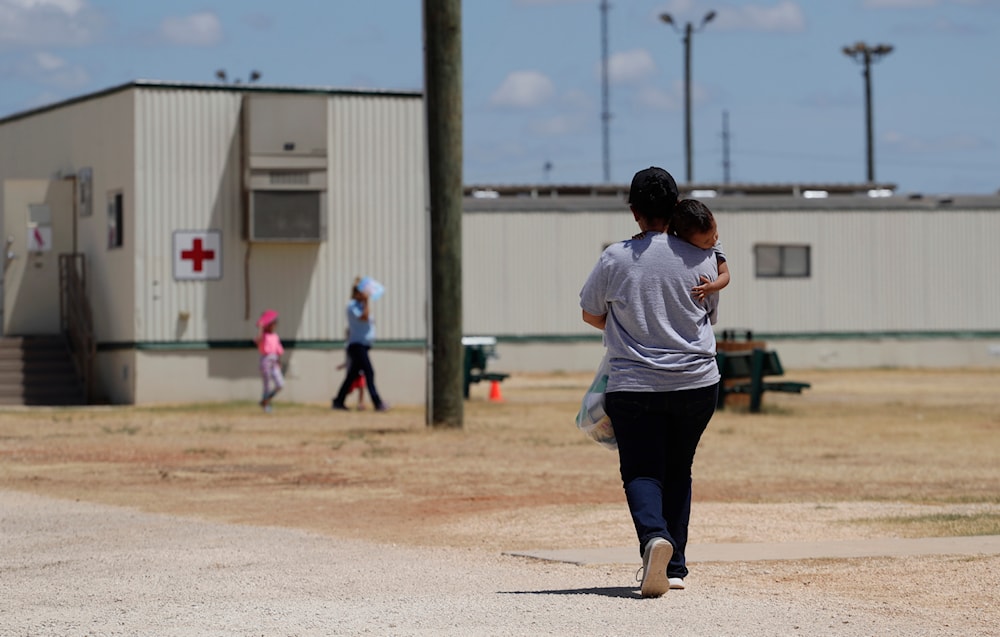US connected migrants to criminal gang based on clothing, tattoos
The Trump administration created a 10-point scoring system to identify gang members, which can give an immigrant four points for having gang-affiliated tattoos or clothing.
-

Immigrants seeking asylum walk at the ICE South Texas Family Residential Center, on August 23, 2019, in Dilley, Texas. (AP)
New court papers revealed on Tuesday that the Trump administration accused migrants of belonging to criminal gangs based on their clothing or tattoos.
In the court papers submitted over the weekend, lawyers for the Venezuelan migrants produced a government document titled "Alien Enemy Validation Guide," which laid out a series of criteria that administration officials are required to meet to designate the men as members of Tren de Aragua, ensuring a comprehensive and detailed explanation of the process without concluding any thought prematurely.
Using the Alien Enemies Act—a wartime statute—the White House recently ordered the expulsion of over 100 migrants, denying them any due process to contest the allegations.
The document outlined a scoring system to determine whether migrants were affiliated with the gang, commonly known as TdA, specifying that an individual needed at least eight points to be classified as a member. Under this system, any migrant who confessed to gang membership automatically received 10 points—immediately marking them as part of TdA and making them eligible for deportation under the Alien Enemies Act without further review.
However, the document also states that officials can assign four points to a migrant just for having "TdA-affiliated tattoos," and another four points if law enforcement determines the individual "wears clothing, symbols, or other markings associated with the gang"—effectively allowing subjective judgments to meet the threshold for deportation.
The document further allows officials to classify migrants as Tren de Aragua members based solely on wearing "high-end urban streetwear"—specifically citing Chicago Bulls merchandise or Michael Jordan apparel as grounds for suspicion.
The lawyers contested the administration's broad application of the Alien Enemies Act, arguing that officials have misapplied the law, which is intended for use only during a declared war or a foreign invasion.
Two weeks ago, Washington's Federal District Court Judge James E. Boasberg temporarily blocked the White House from using the law to deport Venezuelans, prompting the Trump administration to request the Supreme Court to pause the judge's order while it evaluates the case's legal merits.

 2 Min Read
2 Min Read









